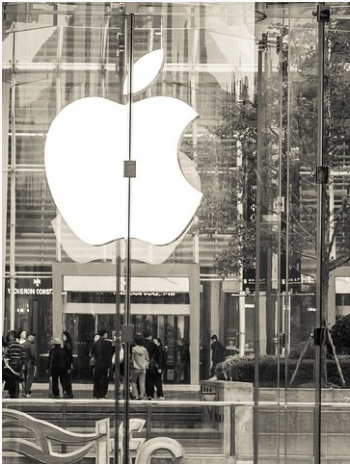Courtesy of Zero Hedge
 The WSJ has a good article explaining how schizophrenic the tech rally this year has been, with shares of giant tech firms "cropping up everywhere" in the universe of factor-based strats, even contradictory ones. Some examples: "Apple is in five low-volatility ETFs with a collective $14 billion and nine momentum ETFs with $17.7 billion, according to data firm XTF. Alphabet resides in seven low-volatility ETFs and three momentum ETFs, while Microsoft is in 11 low-vol ETFs and four momentum ETFs."
The WSJ has a good article explaining how schizophrenic the tech rally this year has been, with shares of giant tech firms "cropping up everywhere" in the universe of factor-based strats, even contradictory ones. Some examples: "Apple is in five low-volatility ETFs with a collective $14 billion and nine momentum ETFs with $17.7 billion, according to data firm XTF. Alphabet resides in seven low-volatility ETFs and three momentum ETFs, while Microsoft is in 11 low-vol ETFs and four momentum ETFs."
That's not all: Apple is also the fourth-largest position in the iShares Quality Factor ETF , which invests in firms with high returns on equity, low debt and stable earnings growth. At the same time, Apple is a large holding in a separate BlackRock ETF that aims to capture momentum, and it is also the top holding in BlackRock’s iShares Edge Value Factor ETF, representing nearly 10% of the portfolio.
While in the past different factors offered different investment styles, and at least superficial diversification, the tech juggernaut has made some of the most popular quant strats virtually overlapping.
This "style creep" means investors holding a mix of seemingly disparate funds in the name of diversification "could be surprised to find heavy concentrations in the same group of in-favor stocks, making them vulnerable in bouts of selling. Rules-based funds and strategies that gradually added tech stocks could sell them in a downturn, adding to price declines."
The biggest risk may be volatility itself.
As the WSJ calculates, "technology now represents 11.3% of the $7 billion PowerShares S&P 500 Low Volatility Portfolio SPLV +0.23% exchange-traded fund, which buys the least-volatile S&P 500 stocks. That compares with 2.9% a year ago." This is how self-reinforcing vol-suppression emerges: when tech stocks are perceived to be the new bond proxies; this is also why tech routs such as the one observed two weeks ago are increasingly likely as the smallest pick up in vol threatens "catastrophic losses", the topic of Marko Kolanovic's latest report.
This is the same concern that Goldman flagged the same day as the tech rout when Goldman analyst Robert Boroujerdi warned "the fear is that if fundamental events cause volatility to rise, these same passive vehicles will sell and exacerbate downside volatility."
Despite the S&P's smooth increase since the election and the record plunge in vol, it is the market's violent rotations underneath the surface since November, when first value stocks soared at the expense of growth only to snap back with a vengeance, that help explains why tech has landed in so many different factors.
An unusual mix of market moves and longer-term industry trends helps explain why tech shares have come to populate an array of overlapping strategies.Fast gains in 2017 for the largest U.S. tech and internet stocks came alongside rare placidity. Until early June, the price swings experienced by this group over the previous six months were near the lowest on record, according to Mr. Boroujerdi. Price volatility for big-cap tech stocks fell below that of stocks in the S&P 500’s utility and consumer-staples sectors, which are viewed as more staid.
Whatever the reason for tech's presence in every quant portfolio, the only thing investors care about is return. And since diversification no longer matters, or is even possible, financial advisor Chad Carlson tells the WSJ that he has allowed one of his clients to park 40% of his net worth in Apple.
Financial adviser Chad Carlson, in Itasca, Ill., said the perception that Apple is a safe stock to own permeated client conversations in the past few years—a sign in his view that investors have grown complacent. Until this month, he said, “People took extraordinary risk in Apple without feeling the actual risk.”
Mr. Carlson said one client of his had about 40% of his net worth in Apple, directly and across various funds, but he refused to diversify because of his experience with high returns, low volatility and his assumption Apple’s rise would continue.
While we have no resson to doubt Carlson's fiduciary duty or his client's "experience", we wonder if they are aware that all they are doing is chasing the global central bank balance sheet, also known as "Liquidity Supernova."
Even if the answer is yes, we doubt the investing "strategy" will change: after all in a world where everyone has "experience with high returns and low volatility" why should anyone's assumptions about perpetually rising stocks change?





